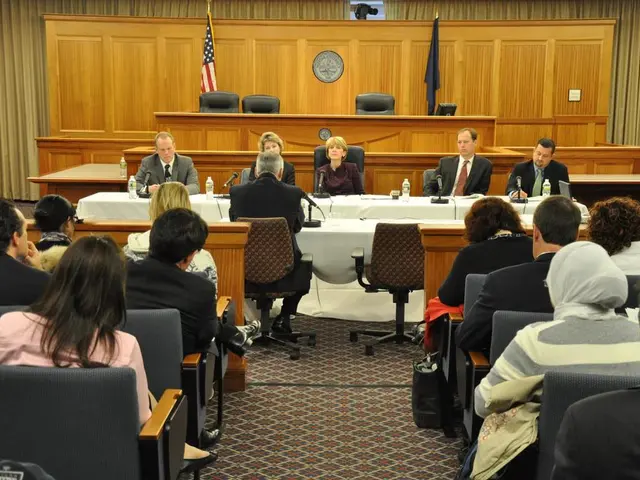"Hossain Zillur Rahman leads efforts maintaining Political Neutrality within BBS"
In an effort to bolster the nation's statistical system and protect it from political interference, a government-appointed taskforce, led by Dr Hossain Zillur Rahman, executive chairman of the Power and Participation Research Centre (PPRC), has put forth a series of recommendations. The taskforce was established in May 2025 to address the rising demand for credible, accessible, and high-quality data, both nationally and internationally.
The taskforce's proposals aim to create a practical, realistic framework that reinforces the Bangladesh Bureau of Statistics' (BBS) independence, enhances the quality and reliability of statistical data, and improves institutional efficiency to better support policy-making and business needs in Bangladesh.
One of the key recommendations is institutional reform, which includes strengthening the BBS's autonomy and legally empowering it as the national statistical office. To build sustainable institutional capacity, the taskforce suggests restructuring human resources and establishing clear career progression paths, moving beyond project-based training programs.
Changes to the Statistics Act 2013 are also suggested to enhance the independence and authority of the BBS, helping shield it from political pressure, especially regarding sensitive data like GDP and inflation figures. The taskforce supports fostering both political independence and operational autonomy for the BBS and related statistical bodies.
To increase transparency and credibility, six technical committees consisting of independent experts alongside BBS officials have been created. These committees will review methodologies and approve data prior to publication. The taskforce is also charged with establishing strict timelines for the release of various data sets and statistical reports to ensure timely and reliable dissemination of information.
To address the issue of staffing shortages, the taskforce will propose a list of core surveys to be financed through the regular budget. Solving the manpower crisis is another key area under consideration, as nearly 50% of BBS positions remain vacant. To strengthen the BBS's capacity, the taskforce will recommend establishing a dedicated training academy.
The taskforce is also considering the possibility of introducing a one-stop service to improve accessibility and integration. To improve communication and accessibility, efforts to enhance the BBS's website usability and provide richer content in Bangla are suggested to better serve stakeholders and the general public.
Dr Zillur, in his focus to turn the BBS into a professional organization, criticized the growth of a "project culture" within BBS operations, stating that it increases the risks of waste and inefficiency. He emphasized the importance of statistics for building a competitive economy and designing effective social policies, and stressed the need to protect critical data from manipulation.
The taskforce will publish its recommendations next month. An independent Statistics Commission, with genuine autonomy, is also deemed necessary by Dr Zillur. Other members of the taskforce include Dr Mohammad Abdul Wazed, Dr Fahmida Khatun, Dr Mohammad Mainul Islam, Dr Mohammad Yunus, and Dr Atanu Rabbani. Since 2006-07, the BBS has become almost entirely project-dependent for funding.
The taskforce's recommendations aim to empower the Bangladesh Bureau of Statistics (BBS) through institutional reform, like strengthening its autonomy and establishing a dedicated training academy, to enhance the quality and reliability of statistical data in support of policy-making and business needs, falling under the realm of education-and-self-development, policy-and-legislation, and politics. The proposed measures also include increasing transparency and credibility through technical committees and strict timelines for data release, as well as addressing staffing shortages and improving accessibility, all aspects covered in general-news.








